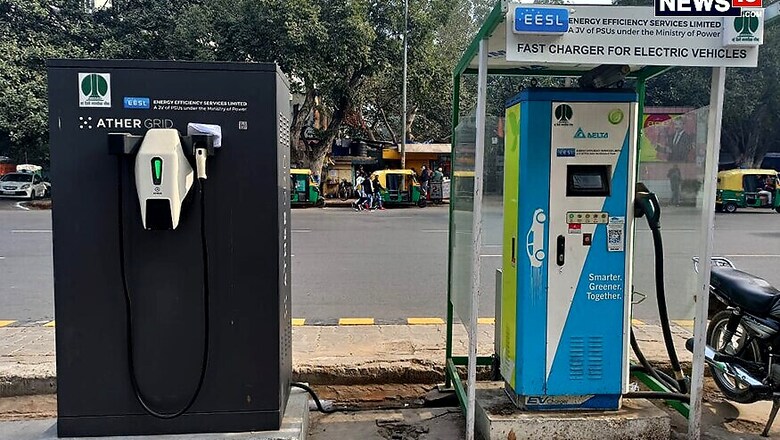
views
Arvind Kejriwal, in a recently held press conference, notified that the Delhi Cabinet has passed the EV Policy for the national capital of India. The Delhi EV Policy was put in the public domain in November 2018 and has been passed now. Under the new EV Policy, the Delhi Government aims to tackle the rising air pollution problem. As per the Policy, EVs inducted in the next 5 years are estimated to avoid approximately Rs 6,000 crores in oil and liquid natural gas imports and 4.8 million tonnes of CO2 (carbon dioxide) emissions. They will also help avoid about 159 tonnes of PM 2.5 (fine particulate matter) tailpipe emissions. Here are the key highlights of the Delhi EV Policy:
• The EV Policy aims to drive the rapid adoption of Battery Electric Vehicles (BEVs) such that they contribute to 25% of all new vehicle registrations by 2024.
• The policy particularly focuses on electric two-wheelers, shared transport vehicles (e.g. three-wheelers/buses) and goods carriers/freight vehicles, since they contribute to majority of the vehicular pollution. Currently, electric two-wheelers constitute to only 0.2% of annual two-wheeler sales, electric cars contribute to 0.1% of car sales and the sales of electric three-wheelers (autos/goods carriers) are almost NIL.
• Within a year, Delhi government is targeting the induction of 35,000 electric vehicles (2/3/4 Wheelers and buses), 1000 EVs for last mile deliveries and 250 public charging/swapping stations to come up in Delhi.
• In the next 5 years, Delhi government is targeting to put 5 lakh new EVs register in Delhi due to this policy.
• Purchase incentive of ₹5,000 per kWh of battery capacity. For an average e-two wheeler with 2kWh battery, applicable incentive would be approx. Rs 10,000 as compared to Rs 5,500 presently being offered by DPCC as subsidy for battery electric vehicles.
• Scrapping incentive of up to Rs 5000 to be offered subject to evidence of matching contribution from the dealer or OEM.
• Ride hailing service providers will be allowed to operate electric two wheeler taxis, which will be a big boost to clean last-mile connectivity.
• All two-wheelers engaged in last-mile deliveries (e.g., food delivery, e-commerce logistics etc.) will be expected to transition 50% of their fleet to electric by March 2023, and 100% of their fleet by March 2025.
• Interest subvention of 5% on loans and/or hire purchase scheme for the purchase of an e-auto. So a loan of typically 12% interest from DFC will now be made available at 7% - the lowest anywhere in India for EVs.
• Purchase incentive of ₹10,000 per kWh of battery capacity for first 1000 cars subject to a cap of Rs 1,50,000 per vehicle
• All leased/hired cars used for commute of GNCTD officers will be transitioned to electric within a period of 12 months from the date of notification of this policy BUSES
• At least 50% of all new electric buses (including smaller buses for last mile connectivity) to be added to the city bus fleet.
• Road tax and registration fees to be waived for all Battery Electric Vehicles during the period of this policy.
• All new home and workplace parking will need to be ‘EV ready’ with 20% of all vehicle holding capacity/parking required to be EV ready.
• Delhi government to provide a 100% subsidy for the purchase of charging equipment up to ₹6,000 per charging point for the first 30,000 charging points at homes/workplaces. Subsidy to be routed through DISCOMS who will be in-charge of charger installations.
• Providing accessible public charging/battery swapping facilities within 3 km travel from anywhere in Delhi is a key objective of this policy.
• A dedicated EV cell shall be established within the Transport Department for effective day-to-day implementation of the Delhi State EV Policy



















Comments
0 comment